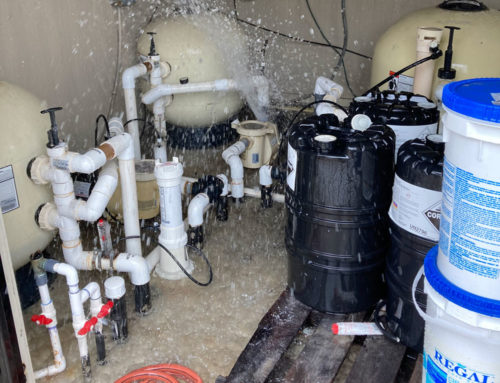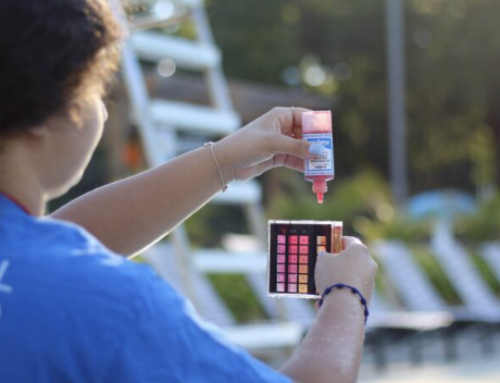Testing the water of your facility’s swimming pool is one of the most important aspects of proper maintenance and pool compliance. Regular testing ensures that your water quality is safe and pleasant for your patrons, which helps contribute to good business. But it can be difficult to decide what kind of testing kit is right for your pool and your staff.
In Part 1, we went over the different types of test kits on the market and how they’re used to analyze the quality of pool water. Now that you have a good background in the products, it’s time to ask yourself which type will work best for your facility. Take these considerations into mind when you’re making a decision.
Check your local requirements
Before you start looking seriously into certain test kits, you should take a moment to find out whether your local regulations mandate which tests your pool needs and what materials are required to perform them. Some states require certain types of tests, like digital meters, or provide a loose set of parameters your test should fall into. Looking into these requirements beforehand will ensure that you don’t run into any legal snafus.
Cover all the bases
Your local requirements may distinguish which aspects of your pool water you need to test. This could range from the basics, like pH, chlorine, alkalinity, calcium hardness and cyanuric acid, to the more advanced, like metals, salinity, temperature and phosphates. Figure out what the requirements are, then base your decision off that. Keep in mind that just because it’s not required doesn’t mean it isn’t helpful. Larger kits can provide a wealth of information that may help you manage pool maintenance more easily.
Take your staff into account
Who’s doing the testing is an important factor to consider when you’re choosing a type of test for your facility. The results of some tests, like the colorimetric or titrimetric ones, can vary from person to person, since it relies on deciphering color. These types of tests aren’t a good option for those who are colorblind, which, according to Taylor Technologies, 6 to 8 percent of the population are. Older people with worsening vision aren’t the best test-takers, either. Color-related tests are best if you only have one person who usually does the testing. If the job rotates, a photometer or digital test might be a better option, since the results are less likely to vary.
Assess your budget
Your facility’s budget needs to be taken into account when you’re choosing a pool test kit. If you don’t have a large budget, some of the more basic, manual tests may suit your needs, as they tend to be less expensive. The digital and photometric tests tend to cost more money up front, but you may require fewer materials in the long run. In any case, you may want to consider saving up for a couple of months prior to purchasing a testing kit or reallocating your budget to make room for the purchase.






